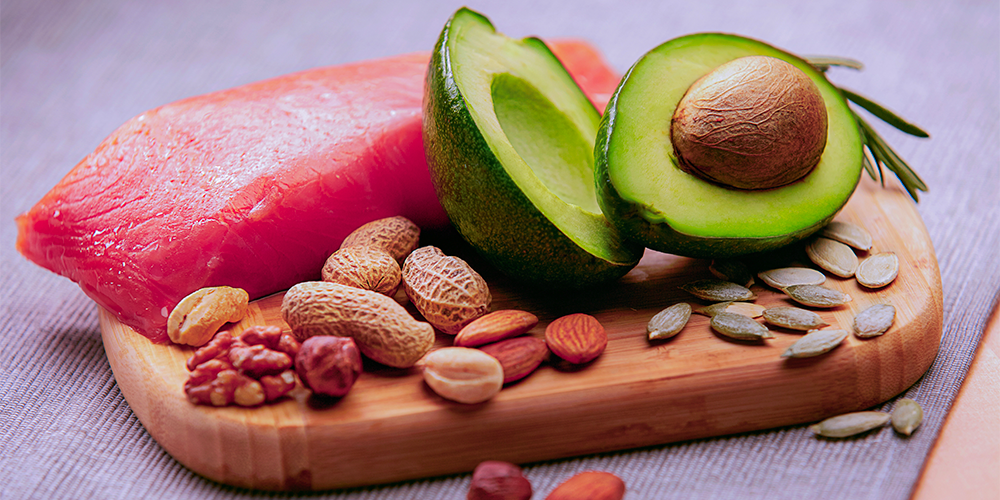In the world of sports, attention has often been focused on carbohydrates and proteins as the main sources of energy and muscle recovery. However, fats also play a crucial and often overlooked role, especially in endurance sports such as running, cycling, and triathlon.
The importance of fats in endurance sports
Fat Metabolism
Fats are one of our body’s main sources of energy, especially during endurance exercise. During long-duration aerobic activities, such as marathons or cycling races, the body primarily uses its fat reserves to keep up the pace and maintain endurance.
During shorter and more intensive training sessions, on the other hand, carbohydrate metabolism predominates, providing around twice as much energy in the same time as the fat metabolism. Although fats burn more slowly, they burn over a longer time period and are available in virtually unlimited quantities in the body. Glycogen stores, meanwhile, only last for around 90 minutes of physical activity. In practice, the burning of fats and carbohydrates complement each other during endurance training without being mutually exclusive.
Briefly explained: Fat and Carbohydrate Metabolism
Muscle Recovery
Furthermore, fats play a crucial role in providing energy during recovery phases. After intense physical activity or prolonged effort, the body tends to primarily use fats as an energy source to replenish energy levels and promote muscle recovery. They provide essential fatty acids and other nutrients necessary for protein synthesis and the rebuilding of muscle fibers damaged during physical activity.
Finally, fats also contribute to muscle protection: by using fats as fuel, muscles can preserve their glycogen reserves for crucial phases of physical activity, such as final sprints or sudden increases in intensity. Since fats represent a slower but steady source of energy, muscle degradation is limited, and muscle mass is preserved during prolonged activities.
Myths to dispel about fats in endurance sports
- Fats slow down performance: This is one of the most common myths, but it does not correspond to reality. Although carbohydrates are the primary source of energy during high intensity efforts, fats provide constant energy during prolonged efforts. An adequate intake of fats in the diet does not compromise performance but rather contributes to endurance.
- Fats cause weight gain: The fear that consuming fats may lead to weight gain is common but not entirely justified. It is true that fats are higher in calories than carbohydrates and proteins, but they are also essential nutrients for optimal body functioning. The key is to consume healthy unsaturated fats, such as those found in avocado, nuts, fatty fish, seeds, and vegetable oils, which provide health benefits without necessarily causing unwanted weight gain. In any case, to avoid weight gain, the decisive criterion is that the energy balance is negative: this means that the energy introduced into the body must be balanced by that used, otherwise the unspent calories are stored by the body as fat.
- Saturated fats should be avoided altogether: While it is advisable to limit the consumption of saturated fats, mainly found in foods such as fatty meats and whole dairy products, some saturated fats can be included in a balanced diet. For example, coconut oil, if consumed in moderation, can offer benefits for heart and brain health. The daily intake of saturated fats should not exceed 10%.
How to incorporate fats into the diet of endurance athletes
Endurance athletes need to include a variety of healthy fats in their diet to maximize performance and promote recovery. Here are some suggestions:
- Choose sources of healthy fats: Avocado, nuts, seeds, vegetable oils (such as olive oil and flaxseed oil), and fatty fish (such as salmon and mackerel) are excellent sources of healthy fats that provide omega-3 and omega-6 fatty acids, important for cardiovascular and inflammatory health.
- Balance fats in the diet: Maintaining a balance between fats, carbohydrates, and proteins is essential for optimizing sports performance and promoting recovery. Athletes should plan meals and snacks that include a combination of nutrients, including fats, to maintain steady energy levels and support muscle regeneration.
- Adequate hydration: Fats may take longer to digest than carbohydrates and proteins, so it is important to maintain adequate hydration during physical activity to promote digestion and nutrient absorption.
You may also find interesting:
Create a training plan for triathlon, cycling, and running based on artificial intelligence with 2PEAK that adapts to your performance after each training. Download the app and start revolutionizing your training.


